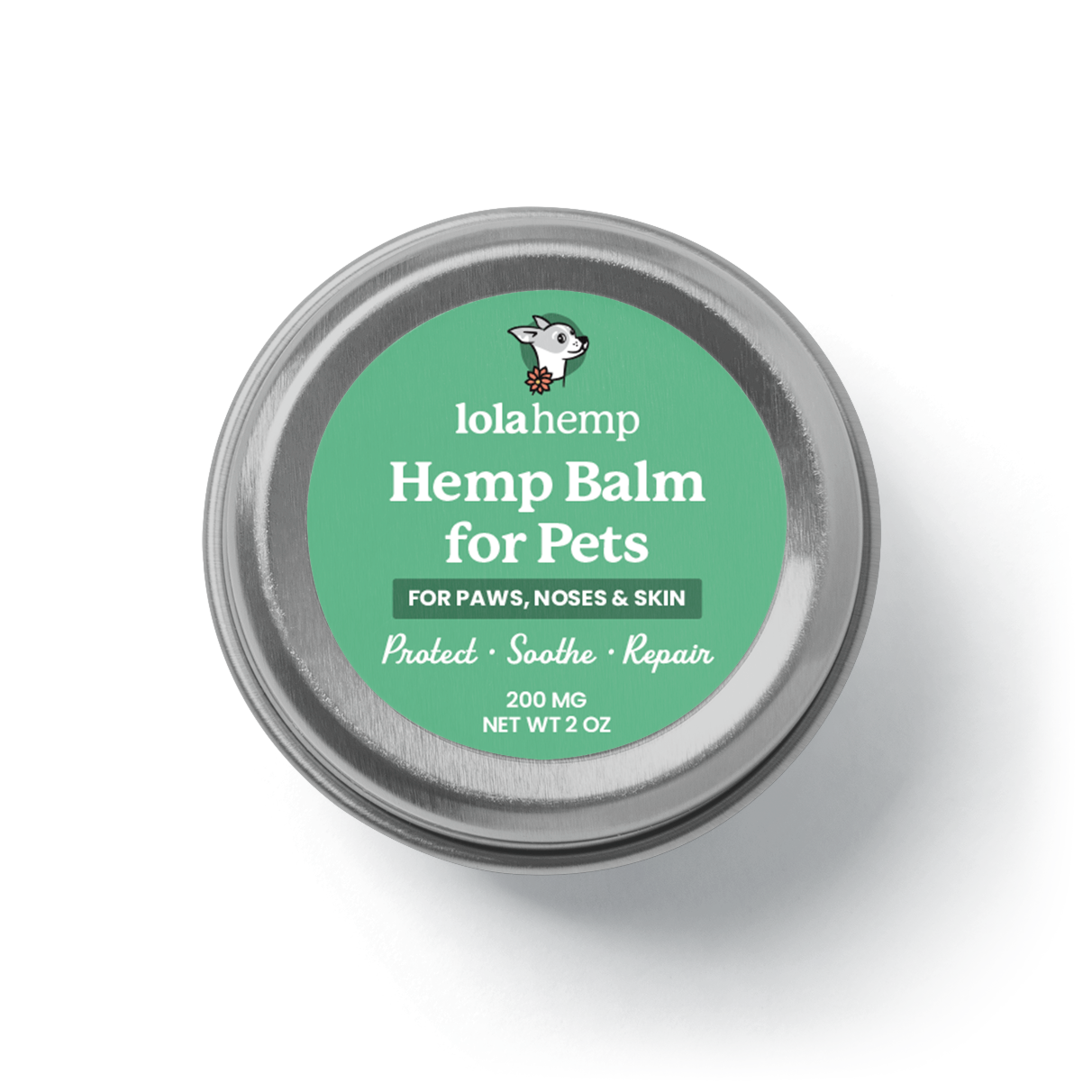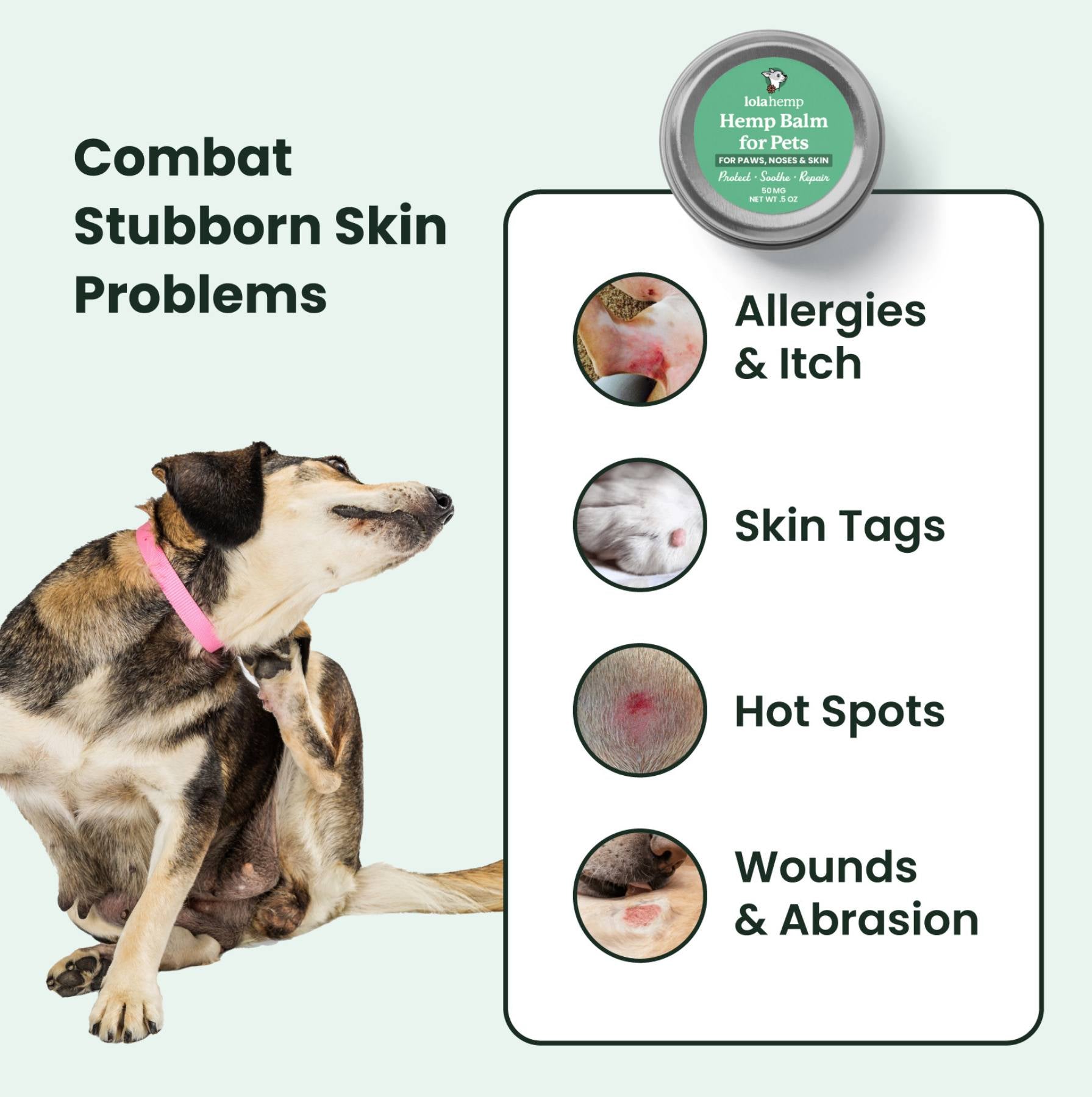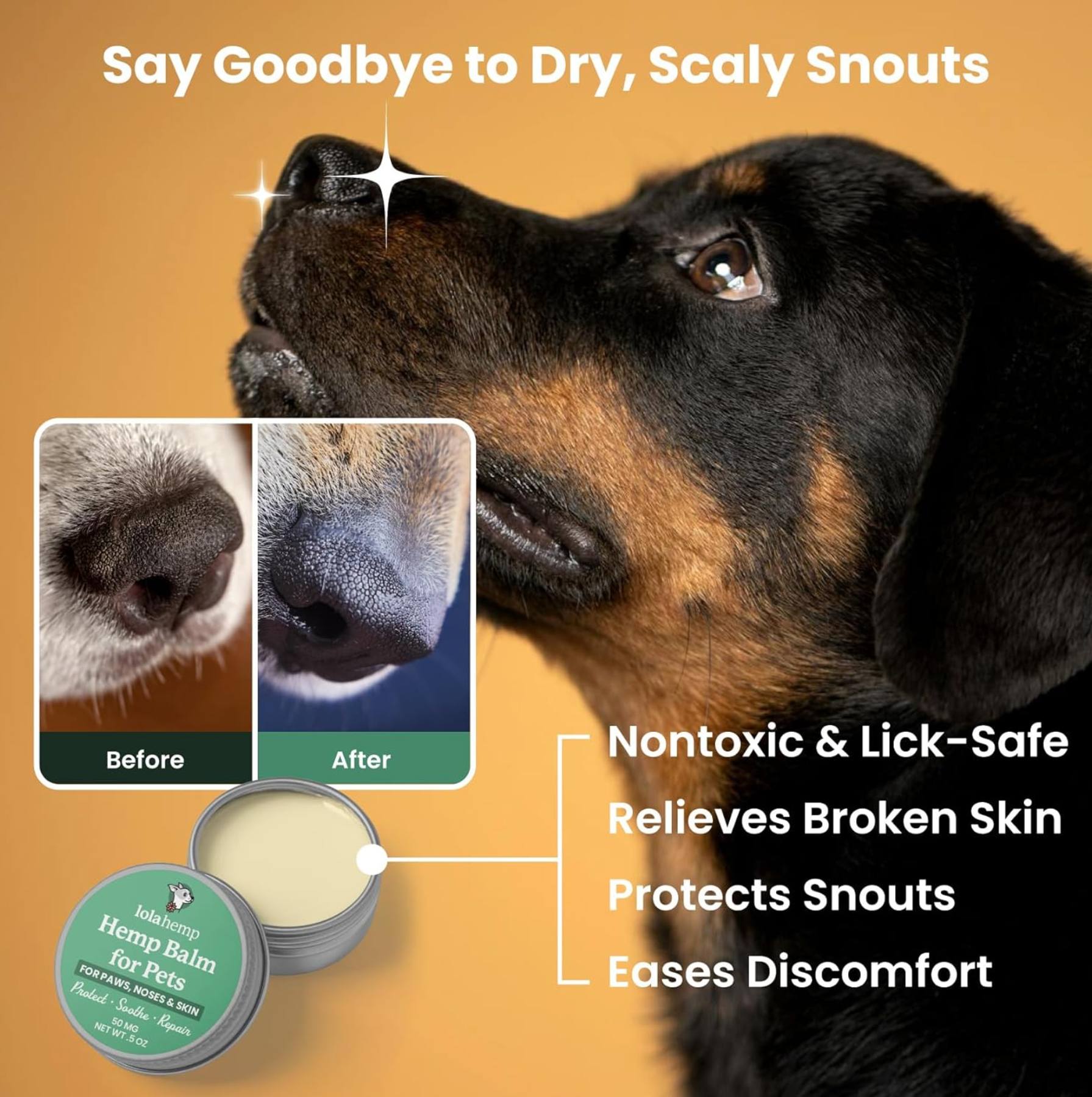If your dog suffers from allergies, you know how frustrating it can be to watch them deal with constant itching, inflammation, or digestive issues. Understanding the causes of allergies and the best treatment options, including topical CBD for allergy relief, can help your furry friend feel better. This guide will break down different types of allergies, conventional treatments, and the role CBD may play in allergy relief.
3 Primary Forms of Dog Allergies & Their Symptoms
Allergies occur when a dog’s immune system overreacts to a normally harmless substance. This overreaction triggers the release of histamines and other inflammatory compounds, causing symptoms such as itching, swelling, and digestive issues.
- Skin Allergies: Caused by flea bites, environmental allergens, or food sensitivities, skin allergies occur when the immune system mistakenly identifies substances like pollen or flea saliva as dangerous. This leads to an inflammatory response, resulting in itching, redness, and potential secondary infections from excessive scratching.
- Food Allergies: Triggered by specific ingredients that can cause itching, digestive issues, or skin problems, food allergies occur when the immune system views certain proteins as threats, leading to gastrointestinal distress, chronic ear infections, and inflammation in the skin and paws.
- Environmental Allergies: Also called atopic dermatitis (or atopy), environmental allergies consist of reactions to pollen, dust mites, mold, or other airborne substances that trigger immune responses, leading to seasonal symptoms such as sneezing, watery eyes, and persistent licking or chewing of the paws.
Key Allergic Symptoms in Dogs
Recognizing the symptoms of allergies in dogs is crucial for timely intervention and effective treatment. Here are some of the most common allergy symptoms in dogs, and their typical causes:
- Itchiness (skin, ears, or paws): Often caused by inflammation and histamine release. Antihistamines and corticosteroids work to suppress this response and provide relief. You can also explore natural topical solutions such as CBD balm to relieve your dog's itching without a prescription.
- Hives or red bumps: Localized allergic reactions cause these bumps. Anti-inflammatory medications and soothing topical treatments help reduce irritation and swelling.
- Swelling around the face, lips, or eyelids: Caused by fluid accumulation due to an allergic response. Antihistamines and cold compresses can help reduce swelling.
- Gastrointestinal issues (diarrhea or vomiting): Arise from an immune reaction in the digestive tract. Dietary changes, probiotics, and hypoallergenic foods can help alleviate symptoms.
- Sneezing, coughing, or watery eyes: Environmental allergens irritate the respiratory tract. Air purifiers, allergy medications, and saline eye drops can provide relief.
- Chronic ear infections: Allergies create excess moisture and inflammation in the ears, leading to bacterial and yeast overgrowth. Medicated ear drops and regular cleaning help prevent infections.
- Excessive licking or chewing: This behavior is often due to discomfort and itching. Topical balms, antihistamines, and behavioral deterrents can help manage symptoms.

If your dog exhibits these symptoms frequently, consulting your veterinarian for a diagnosis is essential. Now, let's take a look at the conventional medicines used to treat these symptoms.
The Best Conventional Medicines for Your Dog's Allergies
Treating dog allergies depends on the specific type of allergy they are experiencing. Medications work by either blocking histamines, suppressing immune responses, or reducing inflammation to alleviate symptoms and prevent secondary infections.
1. Antihistamines for Environmental Allergies
Antihistamines function by blocking histamine receptors, preventing the allergic response that causes itching, swelling, and irritation.
- Common Options: Benadryl (diphenhydramine), Zyrtec (cetirizine), Claritin (loratadine)
- Use: Reduces itching, swelling, and mild allergic reactions.
- Considerations: Not all dogs respond the same way; consult a vet for the proper dosage.
Immunotherapy is another treatment for environmental allergies. The specific allergen is identified through testing, and the dog’s immune system is desensitized over time. Immunotherapy can reduce or eliminate symptoms in 60–80% of treated dogs but can take months to years to take full effect.
2. Corticosteroids for Skin Allergies
Corticosteroids suppress the immune system’s inflammatory response, reducing redness, swelling, and severe itching in cases of persistent skin allergies.
- Common Options: Prednisone, hydrocortisone creams
- Use: Effective for severe itching and inflammation.
- Considerations: Long-term use can cause side effects, so they should be used with caution.
3. Apoquel for Severe Allergies
Apoquel inhibits cytokines involved in allergic reactions, providing rapid relief from itching and inflammation in dogs with chronic or severe allergies.
- Use: Controls itching and inflammation associated with allergic reactions.
- Considerations: A prescription medication that works fast but may have some side effects.
4. Cytopoint for Persistent Skin Allergies
Cytopoint targets and neutralizes a specific protein involved in itch signaling, providing long-lasting relief for dogs suffering from atopic dermatitis.
- Use: A biologic therapy that helps block itch signals from allergens.
- Considerations: Provides long-lasting relief, sometimes up to 4–8 weeks.
5. Medicated Shampoos for Skin and Flea Allergies
These treatments help to cleanse allergens from the skin, reduce bacterial or yeast infections, and provide soothing relief from irritation and dryness.
- Use: Helps manage skin irritation and infections caused by allergies.
- Considerations: Regular bathing with hypoallergenic or medicated shampoos can provide relief.
6. Hydrolyzed or Anallergenic Diets for Dietary Allergies
A hydrolyzed diet for dogs with dietary allergies contains proteins that are broken down into smaller components, making them less likely to trigger an immune response. An anallergenic diet goes even further by using extensively hydrolyzed proteins and purified ingredients to minimize potential allergens. These diets are typically prescribed for dogs with food sensitivities or chronic allergic reactions, such as itching, digestive issues, or ear infections.
All of these options require that you contact your veterinarian for an examination and prescription. When you meet with your vet, be sure to have a detailed account of your dog's symptoms, behavior, and possible exposure to allergens if you're aware of any.
CBD for Dog Allergies: A Natural Alternative
CBD (cannabidiol) is a compound derived from hemp that interacts with the endocannabinoid system, which helps regulate immune responses and skin health. When used for allergies, CBD may influence how a dog's body perceives and reacts to allergens, often providing natural relief. While research on CBD for dog allergies is still developing, some pet owners report benefits, particularly in managing skin discomfort and immune system support.
1. Topical CBD for Skin Relief
Topical CBD balms and creams may help soothe irritated skin by interacting with local cannabinoid receptors, providing targeted relief to areas affected by allergies. CBD’s anti-inflammatory properties can help reduce swelling, itching, and redness.
2. Oral CBD Oil for Immune Support
CBD oil taken orally may help balance immune system responses and support overall allergy symptom management, potentially reducing excessive immune reactions.
3. Omega 3s are a Great Addition to CBD & Other Treatments
Omega-3 supplements are also considered a good conjunctive treatment as Omega 3 reduces inflammation and strengthens the skin barrier. It can take several months to take effect.
How to Choose The Best Allergy Treatment for Your Dog
The best treatment option depends on the type and severity of your dog’s allergies. For mild allergies, antihistamines and medicated shampoos may suffice. Severe allergies may require stronger medications like Apoquel or allergy shots. If you're looking for a natural alternative, CBD may provide additional support alongside conventional treatments.
Always consult your veterinarian before starting any new treatment, including CBD, to ensure it is safe and appropriate for your dog’s condition.
Conclusion
Managing dog allergies requires a combination of identifying triggers, choosing the right medication, and possibly integrating natural solutions like CBD. With the right approach, you can help your dog live comfortably and free from constant itching and irritation.
By understanding the options available, including conventional medicines and CBD, you can make informed decisions to provide your furry companion with the best possible relief!
Frequently Asked Questions About Dog Allergies and CBD
What are the most common types of allergies in dogs?
Dogs most often experience skin, food, and environmental allergies. Each type can cause itching, redness, digestive upset, or respiratory irritation.
Can CBD help relieve my dog’s allergy symptoms?
CBD may help reduce inflammation, itching, and discomfort caused by allergies. Topical CBD is useful for skin irritation, while oral CBD supports immune balance.
Are conventional allergy medications safe for long-term use?
Some, like antihistamines, can be used safely, but long-term use of corticosteroids or Apoquel should be monitored by your vet to avoid side effects.
Is CBD safe to use alongside prescription allergy medications?
CBD is generally safe but can interact with certain medications. Always consult your veterinarian before combining CBD with prescribed treatments.
When should I see a vet for my dog’s allergies?
If your dog’s symptoms persist, worsen, or include severe itching, swelling, or digestive problems, schedule a veterinary appointment for diagnosis and treatment.









